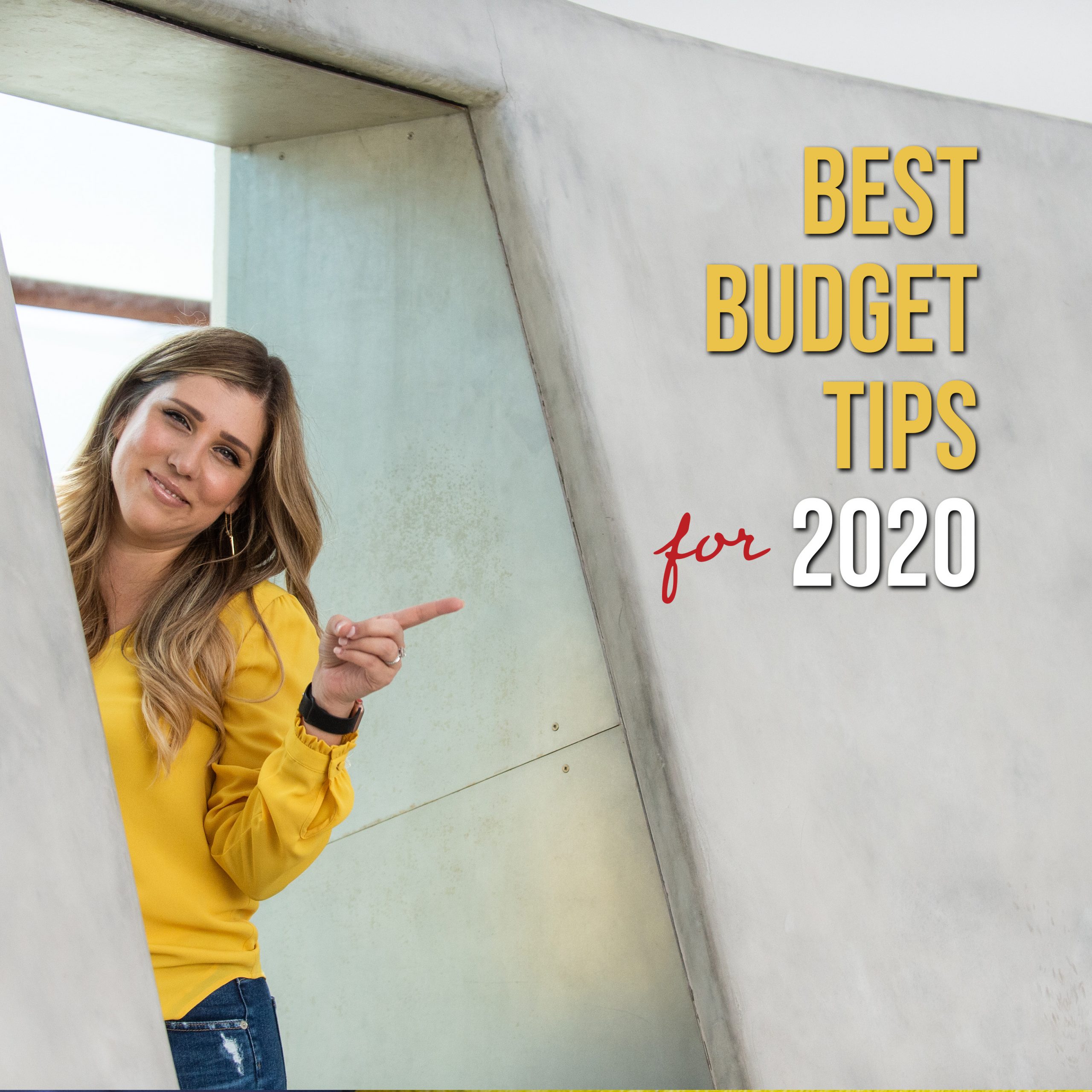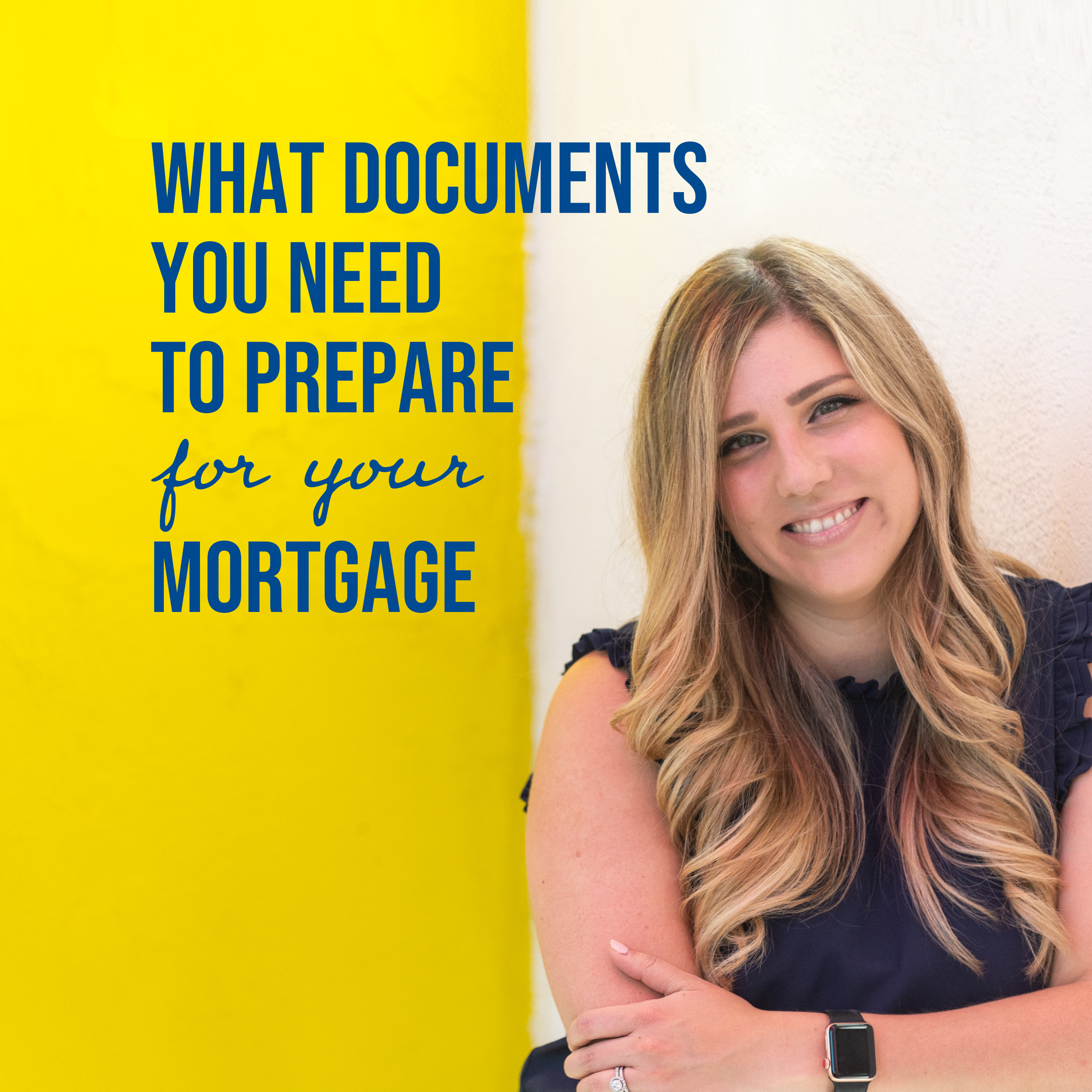Blog
It’s that magical time of year where little white slips appear in the mail and your inboxes… you guessed it, TAX TIME! So this week, in anticipation of people getting those pesky tax filings out of the way, I want to talk about things you need to know about your taxes so that you can buy a home!
So the good news is that if you’re paying taxes, you’re at least making money! I know that little sliver of sunshine might not make paying them any more fun, but we’re trying to look on the bright side here!
So tax “season” as it’s been called, can mean different things for different people. For some, it means there’s yet another bill coming, and you need to shell out more dough to the IRS. And for others, it means you may have paid too much over the course of the year, and you have a refund coming to you!
There are so many things you can use your refund for… (paying down debt is a great option) but have you considered using that tax refund as either part or all of a downpayment on a home?
The average tax refund these days is about $2,800.00.
In Phoenix Arizona, as of the time of this post, the minimum funds required to purchase a home with down-payment assistance is $2,000.00.
Coincidence? Maybe! But the point is, if you are someone who is frustrated with renting and would like to own your home rather than pay to live in someone else’s, your tax refund may be just what you need for a down payment.
Something interesting to note here: The average monthly rent payment in most American cities is actually HIGHER than the average monthly mortgage payment.
For example, in Phoenix, average rent is $1,500.00 per month. The average sale price for a home is around $250,000.00. If you were to choose an FHA mortgage on $250,000.00 at 4%, your mortgage payment is going to end up somewhere right around $1,500.00 per month. (Obviously this is not a rate quote, and actual numbers will depend on a variety of factors that you can learn about in our other money tip videos).
The lesson here is that for the same amount of money, you might be able to own your home versus renting it.
“But Lizy, why would I want to own a home when I can just rent it for the same price?” … I have one word for you: Appreciation. The value of the home you purchase will (most likely) increase with time, but your payments will remain the same. If you rent, you will never reap the benefit of that appreciation. Your landlord will, while you pay their mortgage for them.
Playing devil’s advocate for a second, you will have to be responsible for home repairs if you make the switch from renting to owning. But even that doesn’t need to be a huge burden! (Check out my video on how to budget for home repairs for more info on that topic!!)
The amount of income you declare on your taxes matters!!!
I’ve heard every reason there is for not wanting to actually list one’s income on their taxes, but when it comes to borrowing money to purchase a home, the only way to prove your income to the lender is by showing your tax returns.
There are a few exceptions to this, but in general, most lenders need verify your ability to repay based on your income as reported to the IRS. I get it- the less money you declare, the less taxes you pay. But there are more effective ways to minimize your tax liability with deductions that don’t prevent you from qualifying for a home loan.
I recommend talking to a reputable tax professional to learn what the best strategy for you is. Depending on your types of income and what you are able to deduct, they might give you options to help you qualify for a mortgage if you haven’t in the past!
Many people find the idea of taxes really intimidating. Especially if they have not filed before, or may have past tax issues. But I can promise you that simply talking to a tax professional and starting to address it will help set you on a path that will help you realize your financial goals. And keep in mind, having a payment plan to repay back taxes does not necessarily prevent you from qualifying for a home loan!
Bottom line, the choices you make regarding the tax return you file this year could affect your ability to purchase a home in the coming years. So my best advice is to be cautious, file on time, declare all of your income with the appropriate deductions, and talk to a tax professional so that you can get the most out of your income, and eventually, have the most buying power available to you!!
February 3, 2020

This has been a hotly debated topic on this Money Tip! I first talked about this last year when talking about “velocity banking”, and it was like lighting a match. If you’re not sure what velocity banking is, you can check out this video for more info.
So, that being said, this week is NOT about velocity banking! This week I’m talking about OTHER methods to chip away at your mortgage in practical ways.
First and foremost, it’s really important to have an understanding of how mortgages work so that you can make choices that help you pay it off in a way that makes sense for you. That means we need to talk about amortization.
Understanding Amortization
Amortization is the process of spreading a loan out into a series of fixed payments. Investopedia defines amortization as:
“…paying off debt over time in regular installments of interest and principal sufficient to repay the loan in full by its maturity date. With mortgage and auto loan payments, a higher percentage of the flat monthly payment goes toward interest early in the loan. With each subsequent payment, a greater percentage of the payment goes toward the loan’s principal.”
Confused? It’s ok! Looking at an amortization schedule might actually help when visualizing how amortization works (Hint:This is why when acquiring a mortgage, working with a professional who can go over a detailed amortization schedule with you is a good idea!)
FIVE TIPS TO HELP PAY LESS FOR YOUR MORTGAGE
1. Shorter Loan Term
Yeah, I know this seems like a no-brainer. But some people may not realize that a 30 year fixed mortgage (which is extremely common) isn’t the only option available. You can have 30, 20, 25, 20, etc. There are SO many choices, and it’s a good idea to consider more than one and really think about your long term financial goals when you’re shopping for a mortgage.
For the sake of simplicity, I’ll compare a 30 year mortgage and a 15 year mortgage, both at a 4.5% fixed interest rate, borrowing $200,000.00. The shorter loan term actually saves a ton of money in the long run! Let’s look at the numbers:
30yr Monthly Payment: $1,300.37. Total Interest paid over 30 years: $164,813.42
15yr Monthly Payment: $1,530.99. Total Interest paid over 30 years: $75,397.58
This means that the same exact loan amortized over 15 years instead of 30 saves you $89,414.84
Did your eyes bug out a little bit? Yeah, mine too! Choosing a shorter loan term can save you SO MUCH MONEY. In this example, it’s more than HALF of the money you would have been paying in interest. I don’t know about you, but I love paying 50% less!
Also something to keep in mind, interest rates for shorter terms are usually lower than their long term counterparts. So the moral of this story? Make sure to ask your loan officer to show you more than one option, and if you’re able to make a shorter term mortgage work for you, do it!!
2. Apply ANY excess money you have to mortgage debt.
This is by far the easiest and most practical way for someone who already has a mortgage to pay it down faster. Whether it 5, 10, or 100 dollars, putting it towards your mortgage principal makes a difference!!! I swear, every penny counts here. Every time you put extra money towards your mortgage principal, you are making dent!
Did you know that paying an extra ten dollars a month EVERY month knocks off 9-13 months of mortgage payments? That’s huge!! Ten dollars. That’s one lunch out. Or movie ticket. Or cocktail. ONE. If you can manage to put those ten dollars towards your mortgage every month, you just saved yourself almost an entire year of mortgage payments.
Want to really have your mind blown? Paying an extra $100 every month knocks off six to eight years off your mortgage. Read that again: 6-8 YEARS off your mortgage by paying an extra hundred dollars a month!
NOTE** If you’re going to do this, it’s IMPERATIVE that you mark those extra dollars for principal. This strategy only helps pay down your loan if you are putting that extra money towards principal payments. So when you are making that monthly payment, pay attention to the check boxes!!
3. Bi-Weekly Payments
This is an extremely common strategy. Bi-Weekly payments means that instead of making one mortgage payment every month, you actually make half of your monthly mortgage payment every two weeks. Why does this help? Because by doing this, you actually end up making one extra mortgage payment every year!
You have to be ahead in your mortgage payments to start this, AND you need to make sure that you have the option to implement this with your mortgage company. But if you can, this is an easy way to pay down your mortgage faster!
4. Large Principal Reduction Payments
I bet by now you’re noticing a theme here: The more you pay down your principal, the quicker your mortgage is paid off! It really is that simple.
It all goes back to that initial definition of amortization. Because of that, your monthly payment always remains the same. However, if you are paying extra money towards principal, (either consistently every month, or periodically in large sums) you are reducing the debt owed, and the amount of interest being paid over the life of the loan.
So let’s say you have a large sum of money coming to you- a bonus, commission, inheritance, really awesome birthday present… if you were to put that money towards your mortgage principal, you’re again reducing the amount of money owed, which reduces the amount of time it will take you to pay it back.
Fun fact: If you had a 30 year fixed mortgage, one extra payment a quarter results in an average of ELEVEN years off your mortgage. Obviously this will vary depending on your borrowed amount and rate, but it makes it worth saving up those bonuses and applying them to your mortgage!
5. Refinancing
I’m a bit conflicted in giving this as advice. I personally think it only makes sense to refinance if you will see a significant monthly savings (more than 200 a month in payments), and/or you can drop private mortgage insurance.
If you can- great! It’s absolutely worth exploring, seeing if you can lower your rate, shorten your term, etc. BUT, it needs to be the right circumstances. Refinancing can cost you money, so you need to make sure that the savings achieved are significant enough to cover whatever cost may be associated with it.
January 27, 2020

New year new you? Nah, new year BETTER you! How do we help make you better? By helping you budget better!!! Duh 🙂
First of all, it’s so important to keep a budget. If you’ve never done it before, don’t worry. There’s no reason you can’t start one now. There’s always a reason not to. Some of the most common objections I hear are, “but Lizy…
- I don’t have the time to budget
- I don’t want to be restricted if I need something
- I don’t like to feel controlled!
I hear you. But I’m here to tell you that a budget is not meant to restrict you in any way! It’s simply a tool to show you where your money is going. If you know where your money is going, you can make better choices… (see how I brought us right back to that whole “better you” idea 😉 )
1. SET FINANCIAL GOALS
Setting financial goals for the year helps provide a road map for where you want to be 12 months from now. These goals are totally up to you! Maybe it’s saving for retirement, a wedding, a vacation, a car… whatever you want it to be. When setting these goals, you need to ask yourself two questions:
– How do you want your money to work for you?
– Where are you going to put it?
I think a good rule of thumb for most people is the 70 / 20 / 10 rule. That means that 70% of your income goes to life expenses. 20% goes to debt reduction, and 10% goes to savings (I’ve talked about this idea a lot, you can read more here)
2. CALENDAR
One of the easiest and best tips I can give you is to sit down at the start of the year and assess your calendar. Think about things like vacations, birthdays, holidays, parties, etc. All these things cost money, and you can account for them as part of your lifestyle expenses if you know in advance when they are coming! One of the most common problems people run into when setting up a budget is that they include only their daily and monthly living expenses, but forget about things like birthdays and holidays. So when those things happen, debt happens. But looking at a calendar and planning out for the entire year can help you avoid this problem!
While looking at you calendar and deciding what sort of fun things to add for the year, ask yourself: What kind of life am I going to live? This will help you know how to budget! Plan out your year when it comes to entertainment and lifestyle.
NOTE- you can also do this if you know you have any big medical expenses coming up! If it’s planned on your calendar, it should be accounted for in your budget!
3. GATHER 12 MONTHS OF SPENDING HISTORY
I absolutely realize that this third point may be scary, but I PROMISE you it’s worth it. You need to collect the last 12 months of spending. Then, average what you made, and what you spent. and then break into the following categories:
- Survival
- Entertainment
- Wasted money (subscriptions, frivolous shopping)
Then, rank each category on a 1-10 scale. Anything under an eight (8) needs to be eliminated! Brutal, I know. But the problem with anything under an eight is that it actually ends up stressing you out more in the long run, which often triggers more frivolous spending, rinse, repeat. It’s truly a vicious cycle.
4. REVIEW AND RECONCILE
Once you’ve done all of the above, it’s time to evaluate your budget and try to reduce spending to a more manageable number. The goal is to pay off debt and put that money towards wealth building.
Something to keep in mind: A budget is an estimated limitation on spending. Not something to create and never look at again. You didn’t do all that hard work just to let it go unused!
I recommend sitting down and reviewing your budget twice a month. This way it’s easier to keep track of where you’re at, and you can see if you’ve overspent in any one particular area. For example, if I see that I’ve overspent for this month already, I adjust and take that money out of my entertainment budget for the next month. Be mindful and see if you’re really working towards your goals. Small adjustments help make the big picture much more manageable!
BONUS TIP!
An extra tip for those of you who have a fluctuating income (ie- you get bonuses, work on commission, are self employed)
TIP: budget by percentages, not set dollar amounts. This will help you both in the months that you’re doing really well, and the months that are leaner. So make sure to save the same percentage not the same dollar amount!
I have a budget guide for you! Just click the icon that says “FREE BUDGET GUIDE” on our lizyhoeffer.com homepage! lizyhoeffer.com
January 13, 2020

Happy New Year!!! With every new year comes new resolutions, and on this very first money tip of 2020, I want to talk to you about the most common money resolutions that people set, and help you strategize on how to stick to them!
RESOLUTION #1: SAVE MONEY
We all know how it goes- life happens, unexpected expenses come up, and saving goes by the wayside. ????But there’s no use looking back and regretting it, lets just work on saving moving forward! One of the best ways to stick to this resolution is to set it on autopilot! Make saving easy for yourself. Do you work for a company that offers a 401k? If you do, set up an auto-withdrawl from your paycheck to go into an account NOT attached to checking. You can do the same thing even if you don’t have a 401k. Set up a seperate account, whether it’s a simple savings account or an investment account of some kind, and have money automatically deposited into it each month. The important detail here is that you don’t want this account to be something that is easily accessible (translation: easy to spend from). Pay yourself first!
RESOLUTION #2: GET OUT OF DEBT
You can do it, I promise! But to get started getting out of debt, you need to know where your money is coming from, and where your money is going. It’s not as daunting as it sounds, and I have a worksheet that can help you get on track! One of the reasons you want to set up a budget is so that you can minimize your expenses. I like to follow a 70-20-10 rule. You’ve heard me talk about this before and, you’ll hear it again. But that is because IT WORKS. So what do I mean by 70-20-10?
- 70% of your net income should go towards your lifestyle. This includes housing, vehicles, groceries, etc. Of this 70%, 30% of it should be allocated towards housing.
- 20% should go towards principal debt reduction. *note* once you have paid off all your debt, add this 20% to savings!!
- 10% should go towards savings.
So how do you fit all of your lifestyle expenses into 70%? You can start chipping away at expenses by doing simple things like making lunches instead of eating out, skip the starbucks, and my personal fav, UNENROLL from subscription sites. You’d be amazed at how this small sacrifices eventually add up to big savings! Also turn off auto renewals, and get rid of anything that is a swipe or doubleclick for payments. I recently unenrolled from all my automatic subscription renewals, and realized that I was wasting $166 a month! Which is almost two thousand dollars A YEAR. And let’s talk about those lunches out. If you’re spending an average of $11 on a lunch during the work week, that adds up to four thousand dollars a year. FOUR ????That’s half a down payment on a home for a lot of people! Which brings me to our third resolution…
RESOLUTION #3: BUYING A PRIMARY RESIDENCE
This is obviously my favorite financial resolution for any year! Purchasing a primary residence is huge investment for you life, and it will take planning if it’s something you want to do this year. So here are a couple tips to help you prepare:
- Check your credit. Know where you’re at so you know what you’re getting into!
- Gather all your financial documents. 30 days of paycheck stubs, last two months of bank statements, W2s. You will need tax returns if you’re self employed or earn commissions, or have variable income streams
Another pro tip that may be helpful when shopping for a home loan is to share that budget that your’re creatig from resolution #2 with your loan officer! This will help them get an overall picture of your financial health and goals, and find a payment that is right for you!
The new year (and new decade!!) is an exciting time for all of us! I hope this video helps motivate you and give you some tools to make 2020 your best financial year yet! As always, if you have any questions, please reach out. I’m always here to help 🙂
January 6, 2020



